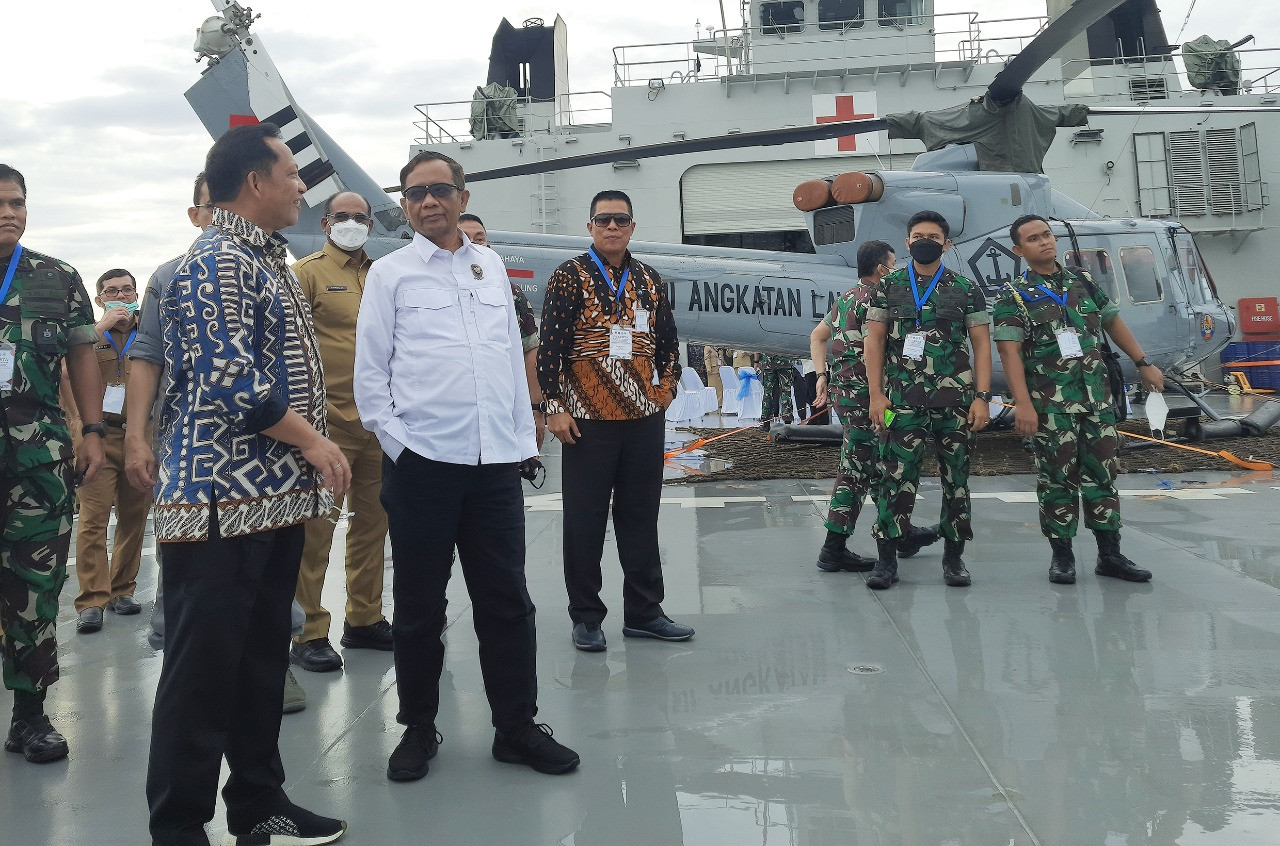Popular Reads
Top Results
Can't find what you're looking for?
View all search resultsPopular Reads
Top Results
Can't find what you're looking for?
View all search resultsThe Natuna factor
Since the fall of the nation’s first president, Sukarno, in 1966, Indonesia has tended to stay closer to the United States for various reasons, including of security.
Change text size
Gift Premium Articles
to Anyone
A
mid the increasing assertiveness of China in the Natuna Sea, a part of which it claims as its own, and Beijing’s hardening stance in the South China Sea, some observers are wondering whether Indonesia should readjust its constitutionally mandated “free and active” foreign policy.
Since the fall of the nation’s first president, Sukarno, in 1966, Indonesia has tended to stay closer to the United States for various reasons, including of security. With the steady rise of China, this de facto proximity will become more noticeable, although Indonesia continues to insist it will not ally itself with any foreign power.
During Donald Trump’s presidency, countries in the region were forced to reposition themselves, because not only did Trump care little about countries outside the US, he also demanded that they support his “America First” agenda. This was compounded by his repeated lack of attendance at major ASEAN functions.
When Joe Biden took over in January of this year, hope was renewed that Washington would return to its traditional path. But Biden, too, initially opted for a “you are with us or against us” policy. He humiliated Indonesia by openly demonstrating his dissatisfaction with President Joko “Jokowi” Widodo’s reluctance to align itself more closely with Washington.
But the Biden administration seems to have changed course from the choice it made a few months ago, when Vice President Kamala Harris and Defense Secretary Lloyd Austin skipped Indonesia in their ASEAN tour. This week, Secretary of State Antony Blinken came to town. Unfortunately, the most concrete result of the much-anticipated visit was that a member of Blinken’s entourage tested positive for COVID-19.
In his keynote speech at the University of Indonesia on Tuesday, Blinken outlined the US’ stance on the ASEAN-initiated Free and Open Indo-Pacific. The message was loud and clear. Washington is wooing Jakarta and other members of the regional group to join its global campaign to contain China.
Apart from assuring the region that the US would not let China control the South China Sea, Blinken emphasized, unconvincingly, that ASEAN centrality in the Indo-Pacific would be in the interest of Washington. He added that the US would adopt an “integrated deterrence” strategy with its allies and partners to contain China.
Despite its promises, in terms of economic cooperation and the provision of COVID-19 vaccines in the region, the US lags behind China. The majority of Indonesia’s COVID-19 vaccines have come from China, and the Asian giant has helped Indonesia build new infrastructure.
However, China’s Natuna Sea claims are indeed worrying and frustrating. Recently, Beijing protested Indonesian oil and gas drilling in Natuna waters, even though the operations were conducted within Indonesia’s Exclusive Economic Zone (EEZ) in accordance with the United Nations Convention on the Law of the Sea (UNCLOS).
It may be just a matter of time before Indonesia decides that a bit more flexibility is warranted in its “free and active” foreign policy, given China’s recent truculence.
But we still believe that China will maintain its good neighbor policy and exercise prudence in dealing with the Natuna Sea issue.











